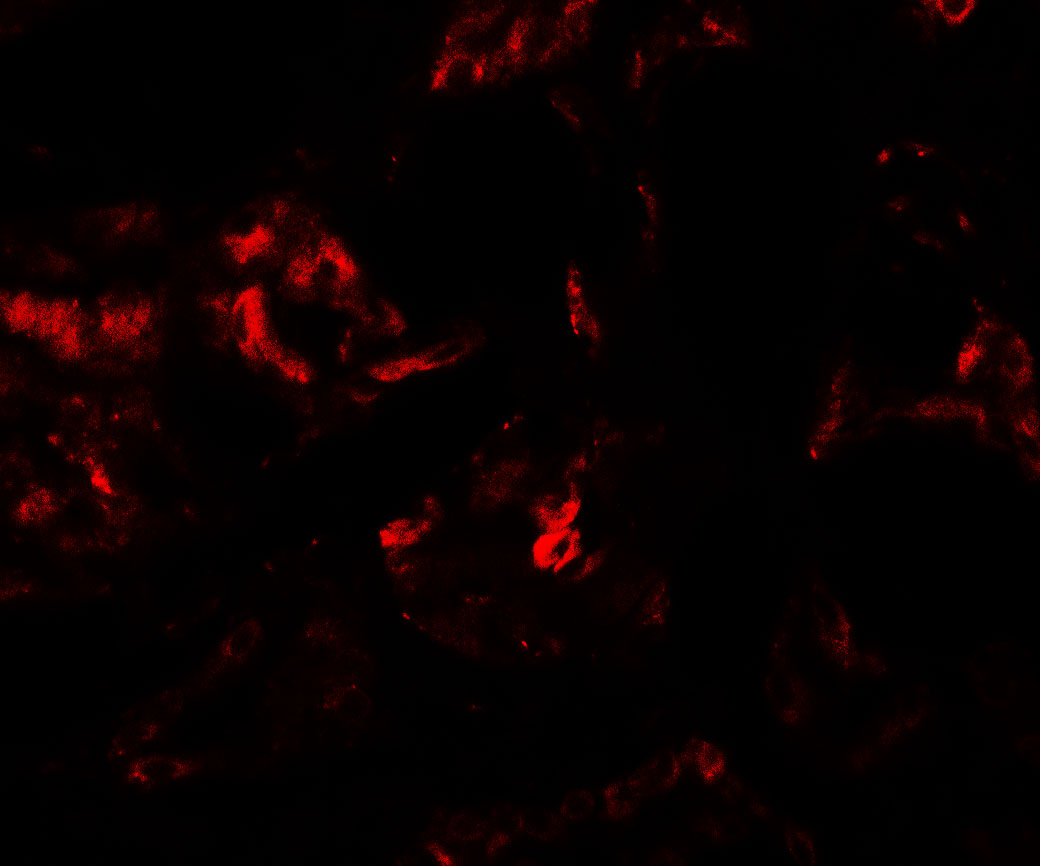PLA1A Antibody
| Code | Size | Price |
|---|
| PSI-7059-0.02mg | 0.02mg | £150.00 |
Quantity:
| PSI-7059-0.1mg | 0.1mg | £449.00 |
Quantity:
Prices exclude any Taxes / VAT
Overview
Host Type: Rabbit
Antibody Isotype: IgG
Antibody Clonality: Polyclonal
Regulatory Status: RUO
Applications:
- Enzyme-Linked Immunosorbent Assay (ELISA)
- Immunofluorescence (IF)
- Western Blot (WB)
Images
Documents
Further Information
Additional Names:
PLA1A Antibody: PSPLA1, PS-PLA1, NMD, PSPLA1, Phospholipase A1 member A, Phosphatidylserine-specific phospholipase A1
Application Note:
PLA1A antibody can be used for detection of PLA1A by Western blot at 1 - 2 μg/mL. For immunofluorescence start at 20 μg/mL.
Antibody validated: Western Blot in human samples and Immunofluorescence in human samples. All other applications and species not yet tested.
Antibody validated: Western Blot in human samples and Immunofluorescence in human samples. All other applications and species not yet tested.
Background:
PLA1A Antibody: PLA1A is a phospholipase that hydrolyzes fatty acids at the sn-1 position of phosphatidylserine and 1-acyl-2-lysophosphatidylserine. This secreted protein hydrolyzes phosphatidylserine (PS) in liposomes and can also hydrolyze PS in apoptotic cells and activate platelets where the resulting 2-acyl-lysophosphatidylserine acts as a lipid mediator for mast cells, T cells, and neural cells, suggesting that a major function of PLA1A may be the production of lysophospholipid mediators. PLA1A is upregulated in rat peripheral blood cells bearing long-term surviving cardiac allograft. PLA1A is also expressed in human THP-1-derived macrophages and this expression is upregulated in cells treated with lipopolysaccharide, a TLR4 ligand. This upregulation is inhibited with corticosteroids, which are often used at high dosages to suppress chronic allograft rejection.
Background References:
- Sato T, Aoki J, Nagai Y, et al. Serine phospholipid-specific phospholipase A that is secreted from activated platelets. A new member of the lipase family. J. Biol. Chem. 1997; 272:2192-8.
- Aoki J, Nagai Y, Hosono H, et al. Structure and function of phosphatidylserine-specific phospholipase A1. Biochim. Biophys. Acta 2002; 1582:26-32.
- Hosono H, Homma M, Ogasawa Y, et al. Expression of phosphatidylserine-specific phospholipase A(1) mRNA in human THP-1-derived macrophages. Cell Transplant. 2010; 19:759-64.
Buffer:
PLA1A Antibody is supplied in PBS containing 0.02% sodium azide.
Concentration:
1 mg/mL
Conjugate:
Unconjugated
DISCLAIMER:
Optimal dilutions/concentrations should be determined by the end user. The information provided is a guideline for product use. This product is for research use only.
Homology:
Predicted species reactivity based on immunogen sequence: Mouse: (75%), Bovine: (71%)
Immunogen:
PLA1A antibody was raised against a 17 amino acid synthetic peptide near the carboxy terminus of human PLA1A.
The immunogen is located within amino acids 380 - 430 of PLA1A.
The immunogen is located within amino acids 380 - 430 of PLA1A.
NCBI Gene ID #:
51365
NCBI Official Name:
phospholipase A1 member A
NCBI Official Symbol:
PLA1A
NCBI Organism:
homo sapiens
Physical State:
Liquid
PREDICTED MOLECULAR WEIGHT:
50 kDa
Protein Accession #:
NP_056984
Protein GI Number:
7706661
Purification:
PLA1A Antibody is affinity chromatography purified via peptide column.
Research Area:
Immunology
SPECIFICITY:
At least three isoforms of PLA1A are known to exist; this antibody will detect all three isoforms.
Swissprot #:
Q53H76
User NOte:
Optimal dilutions for each application to be determined by the researcher.
Related Products
| Product Name | Product Code | Supplier | PLA1A Peptide | PSI-7059P | ProSci | Summary Details | |||||||||||||||||||||||||||||||||||||||||||||||||||||||||||||||||||||||||||||||||||||||||||||
|---|---|---|---|---|---|---|---|---|---|---|---|---|---|---|---|---|---|---|---|---|---|---|---|---|---|---|---|---|---|---|---|---|---|---|---|---|---|---|---|---|---|---|---|---|---|---|---|---|---|---|---|---|---|---|---|---|---|---|---|---|---|---|---|---|---|---|---|---|---|---|---|---|---|---|---|---|---|---|---|---|---|---|---|---|---|---|---|---|---|---|---|---|---|---|---|---|---|---|---|




